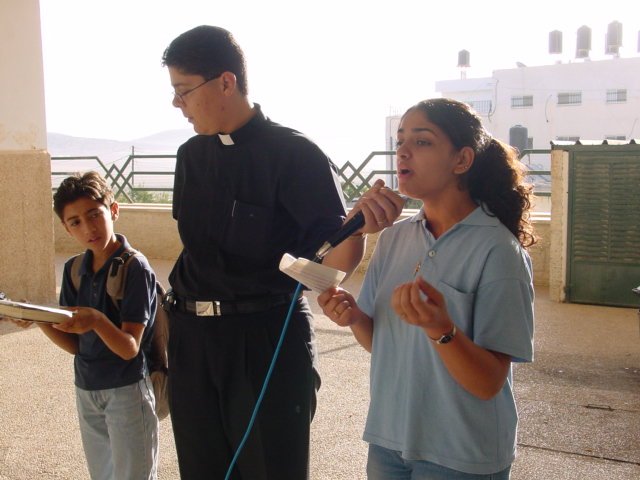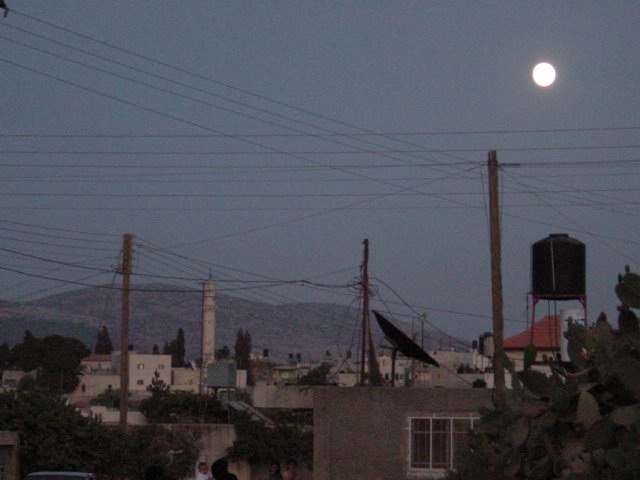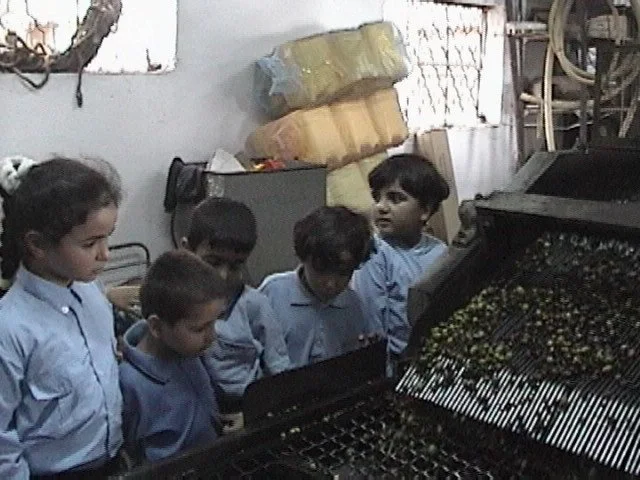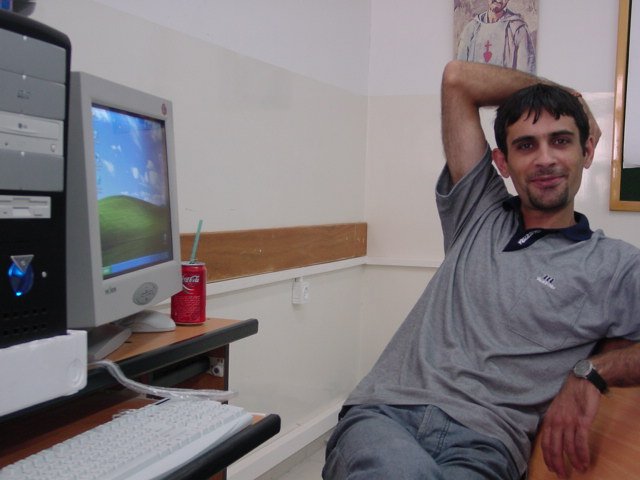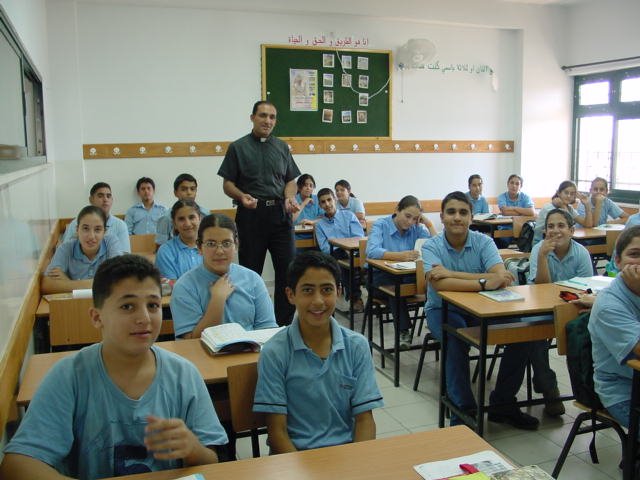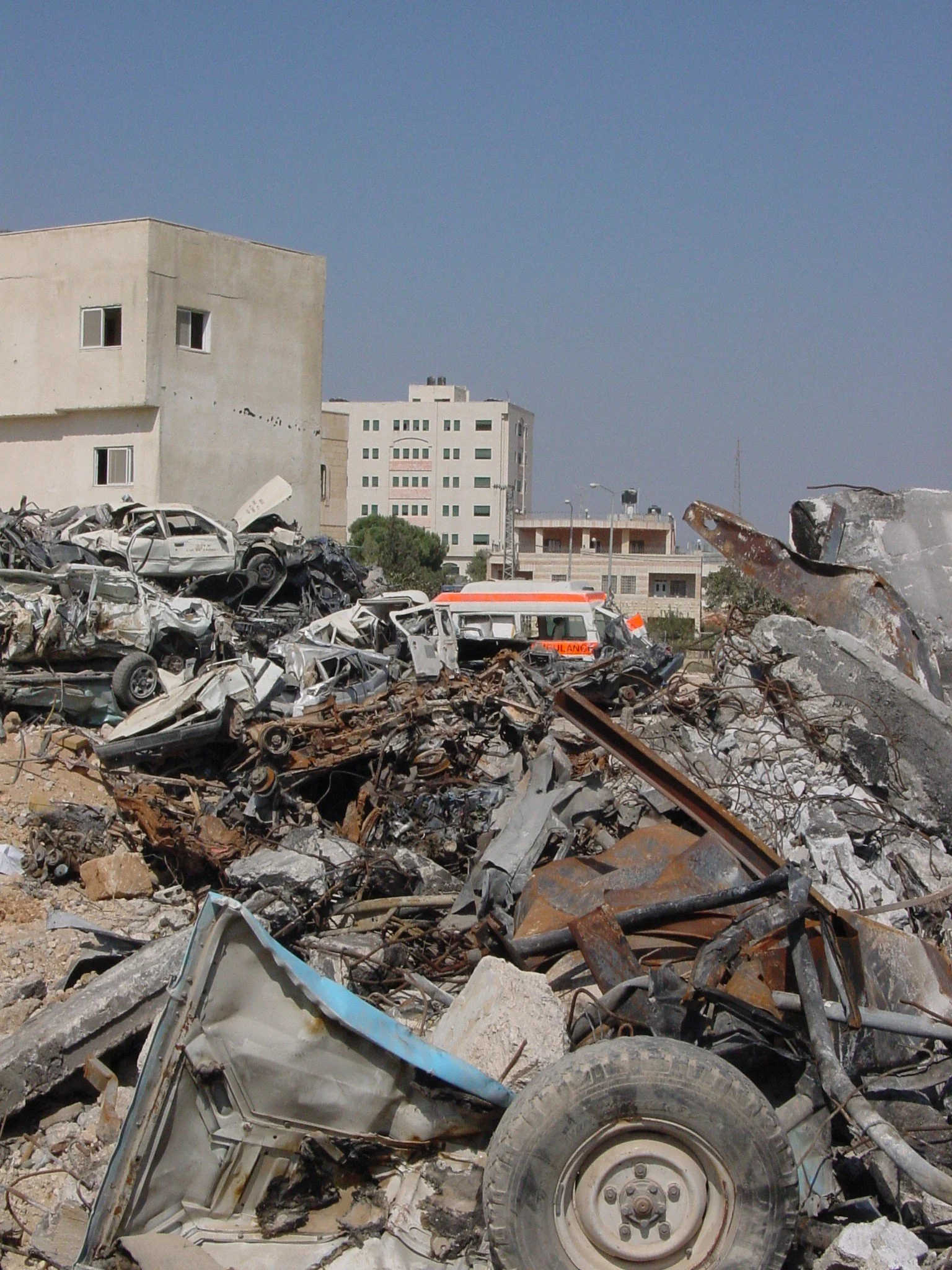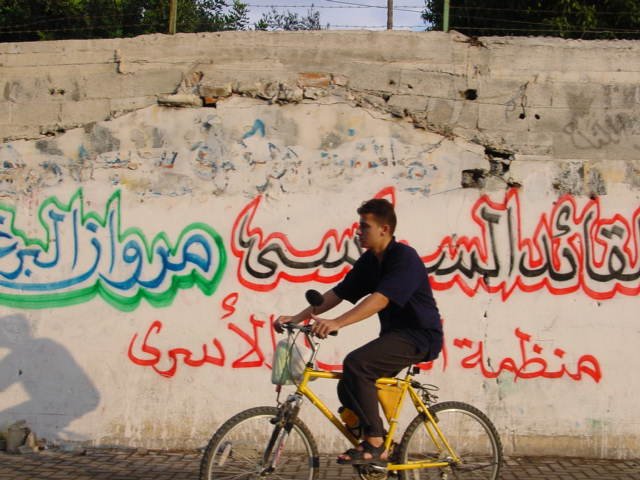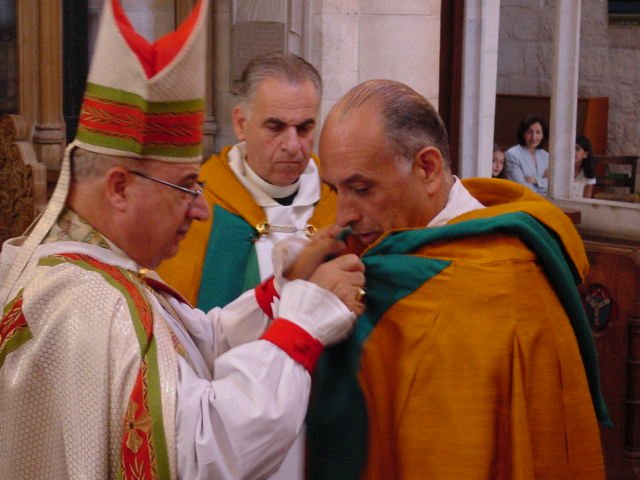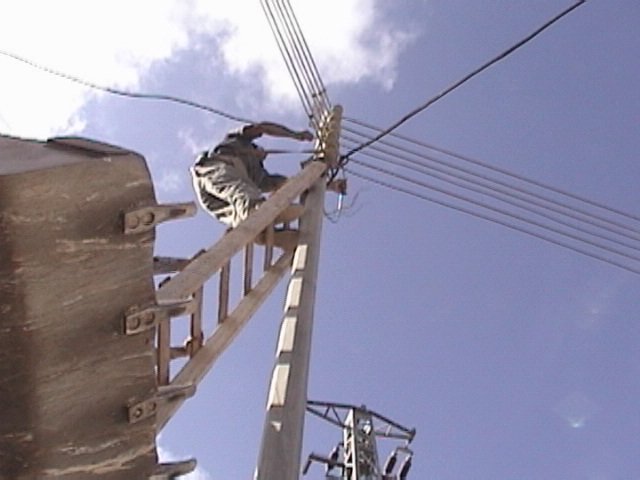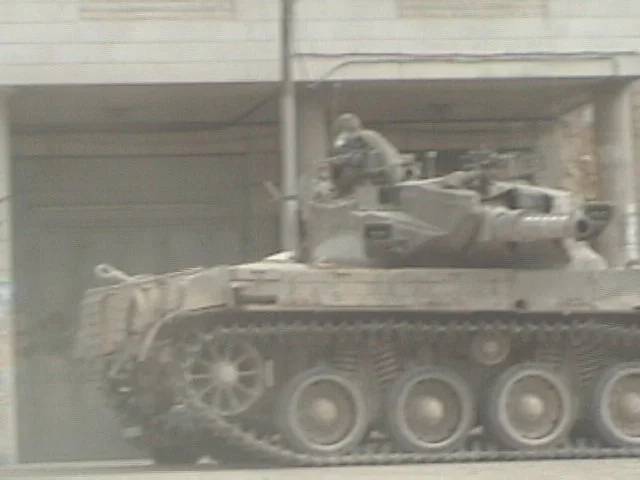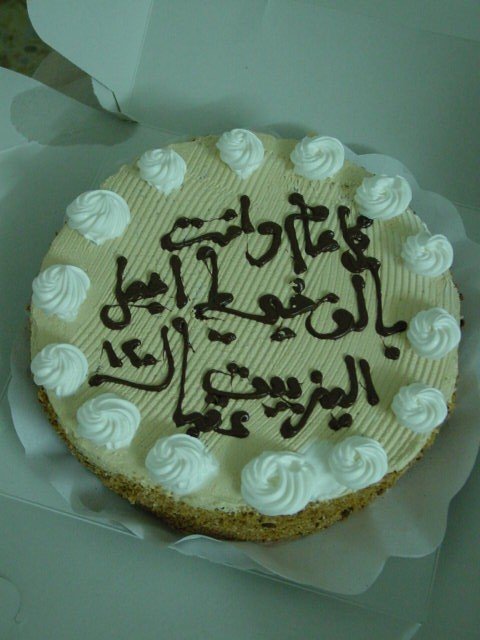October, 2002
Three tanks left the edge of Qabatia by way of the military/settler bypass road, but by 10:00 it was too late to bring kids to school. Ugh.
The war crimes of the Palestinians - the suicide bombings, the armed attacks on citizens - are paraded before the world, and rightly so. But those of the Israelis don't even warrant news coverage - they're that common. Status quo.
We pulled up into one of several stonecutters' shops which line the road to Misilye.
Explaining the liturgy was both encouraging (for how much we've learned) and discouraging (for how much we have left to know). But to put a bright spin on it, the mystery still remains.
Firas' new responsibilities as deacon (and, soon to be, priest) include not only Zababdeh's Melkite community, but also for the Christians in Jalame and Muqeible. Not more than a quarter mile separates the two villages, but the two places couldn't seem more apart.
Marthame's visit to the Anglican clinic yesterday was only helpful to a point - his ears are congested, and the doctor decided to "suction" them - end result, one ear is open, the other closed - closed, closed. Not unlike Jenin today.
By the time assembly ended, the Jenin schoolbus had not arrived, meaning our Jenin kids probably would not make it today. That means students from Jenin (including a couple of Elizabeth's eighth graders) will miss some of their half-semester exams.
Yesterday, we got a pre-recorded message that our phone bill was late and must be paid or we might have our lines cut. The problem is, we haven't received a phone bill in three months.
Obviously, we're worried for our students and teachers who not only have to travel through this battleground, but have to live there.
Ariel Sharon has promised "retribution" for this attack. It's bad enough here when the Israelis aren't seeking revenge.
We thought briefly about leaving home today, but then found that gravity's pull in our bed seems to be unusually strong.
The olives are brought in large bags, then dumped into the system which sorts the olives out from the sticks and leaves, then they are washed, crushed, then the water and oil are separated out. The end result is glorious, glorious fresh olive oil.
There is a certain rhythm to picking - one tree, then morning coffee, then another, then breakfast, then another, tea, then another, and lunch.
Marthame smiled at the wrong moment, when the Russian policeman was looking at him. He came over and asked in Hebrew, "What are you laughing at?" Then in Arabic, "Are you a Muslim?"
There is no order here, there is no Authority, and people have been living in more squalor than usual for the past two years. Every night, Apaches and F-16s fly overhead, and periodically puncture the night and Gazan buildings with rockets. If this is hell, then we are the devil's minions, we American taxpayers.
Every PC(USA) moderator has the ex-officio honor of being ecumenical canon at St. George's, but until now, only one moderator had come to Jerusalem to receive this honor. The Rev. Dr. Canon Fahed Abu-Akel is the second, and today this honor was given to him as part of the Sunday worship service.
Our destination was the village of Kufr Yasif, Rev. Dr. Abu-Akel's home town. He had been raised in the Greek Orthodox Church there, and even though he had become a Protestant pastor, it was that church which hosted his "welcome home" reception.
Fr. Elias Chacour, the school's founder, welcomed his unexpected guests with lunch.
No Jenin students today - no surprise. It has already been a long school year, and it's only October.
Marthame took a break from his duties at the school to film an historical event: the re-introduction of electricity to Zababdeh's Melkite Church.
The afternoon was filled with the constant churning sounds of airplanes overhead - no matter how much it might happen, it's difficult - if not impossible - to get used to it.
Today is the feast of the Rosary Sisters' order, and the church turned out in full to celebrate.
Everywhere are the signs of battle - one is the burned-out hull of the City Center, a fifteen-story mall at the center of town.
The streets were empty, except for the presence of Israeli tanks and jeeps and those who had been detained by them for breaking curfew. The place is a wreck - trash is piling up, the basic civil infrastructure - streets, sidewalks, curbs, signs - have been crushed and damaged by tanks. Buildings are riddled with bulletholes.
He, along with another 200 young men, were detained for questioning and background checks, accompanied by verbal and physical harassment. Finally, at 11:00 p.m., he was released and sent home to Zababdeh - on foot.








